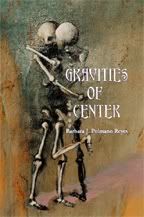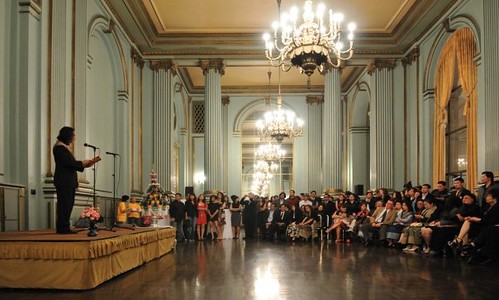
She recounts how people encountering experimental Filipino poetics tend to respond with distrust. "I think there may be an element of distrust involved; is the writer “tricking” us or hiding something from us. Why can’t she just give it to us straight?," they seem to ask.
As she goes into her discussion, she says "I reassured them that any “difficulty” of the text is purposeful, not arbitrary, or not simply to confuse us, but to encourage us to dig a little deeper."
I love the way she closes: "I respect texts that consider our active participation as readers, rather than being spoon fed a canned narrative, that do not insult our intelligence." Definitely check this post out.

I run into Lao American readers who tell me they love poetry, but lately, often direct and simple poems. Which, I admit, baffles me greatly, given the typical Lao love for traditional songs. Songs that are riddled with subtle metaphors, allusions and figurative language. Add to this the traditional Lao love for wordplay and banter, even in simple market conversations, and I can relate deeply to much of BJR's dismay.
There's certainly a time and place for simple and direct pieces. But as a community we're shortchanging ourselves, if, given our literary and oral history, that's all we ever wrote from this point forward.
I'm not interested in writing Hallmark Cards. I want to create poems that do not just what poetry can do, but is supposed to do. As vast, nebulous and uncertain as that can seem, sometimes.
Because of sensitivities that continue during the Lao antebellum, so many narratives are told in particular styles because direct statements invite certain complications with very real liabilities. The work of Xue Di, Bei Dao and the Misty Poets are excellent examples of where poets are necessary and vital to this element of social process.
As a Lao American writer, I have a preference for experimental poetics and speculative poetry, poems that draw on elements of science fiction, fantasy and horror. You can see the intersection of these interests of mine in my poems "2019 Blues," "How to Build A Boat," and "Zhu Bajie," among others, or the more well known "Burning Eden One Branch At A Time."
This often places me and my readers in somewhat unexpected territory as a consequence. But as a community, it's essential for us to maintain vigorous engagement with the literary arts, and with a genuine sense of cultural fluency and both concrete and abstract thought. Narratives like memoirs, novels and short stories don't get to play around as much with the social and cultural fluidity of language that poetry can. But that's also getting into a whole different post.
No comments:
Post a Comment